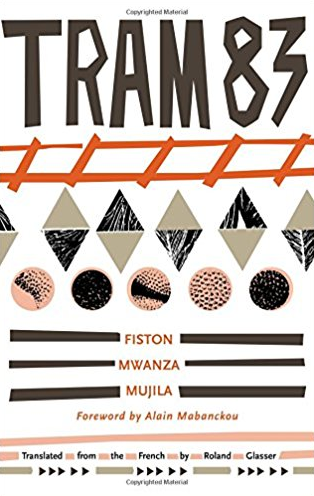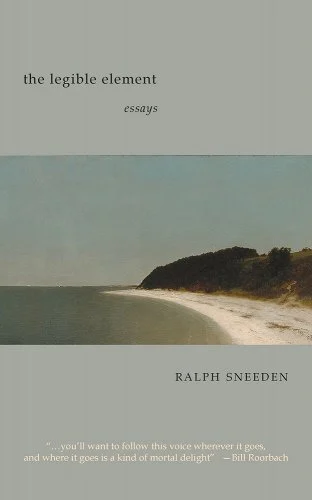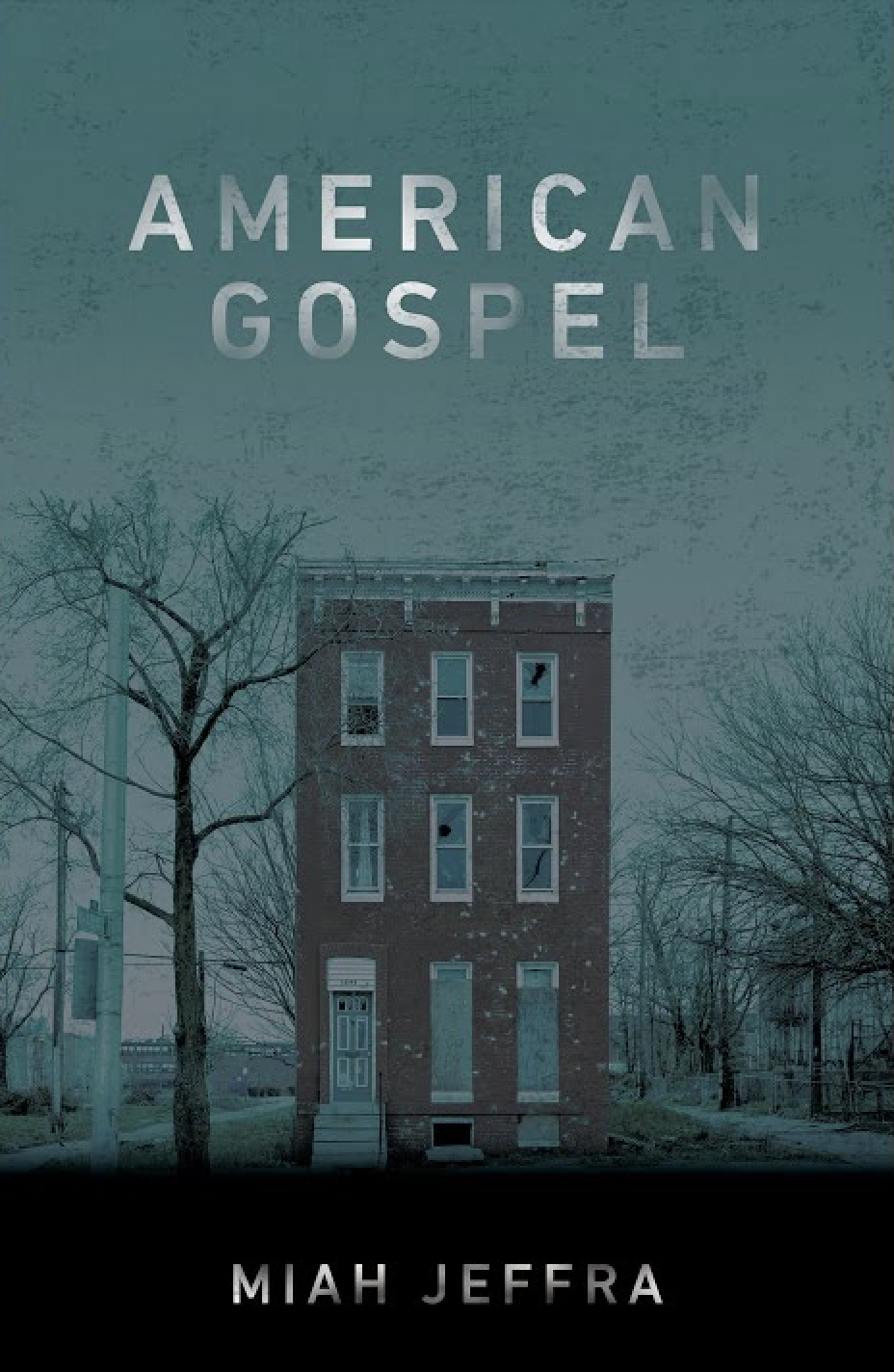Book by FISTON MWANZA MUJILA
Reviewed by

After I finished reading Tram 83, the debut novel by Congolese writer Fiston Mwanza Mujila, a quote from journalist Adam Hochschild’s book, King Leopold’s Ghost, haunted me, and I went in search of it. With just a few lines, he laid bare the long-term effects of colonization on Congo:
From the colonial era, the major legacy left to Africa was not democracy as it is practiced today in countries like England, France and Belgium; it was authoritarian rule and plunder. On the whole continent, perhaps no nation has had a harder time than Congo in emerging from the shadow of its past.
I did more searching and was reminded of the shocking details of the atrocities suffered by the Congolese under Belgian King Leopold II who acquired the region as a colony for his personal use in the early 1900s and proceeded to exploit its resource-rich land and its people using brutal force. Millions lost their lives. In 1908, bending to international pressure, the Belgium parliament finally took over Congo, but within its own colonial practices, racism and exploitation remained—and in 1960, when the Congolese finally gained independence from the Belgians, a hopeful nation, led by nationalist Patrice Lumumba, was born. Yet, like many other newly independent countries in Africa, Congo’s postcolonial period became plagued with instability, civil war, widespread corruption, and oppression under authoritarian rule.
Today, more than fifty years after Congo’s independence from the Belgians, I wondered: where is that shadow of the past that Hochschild speaks of? According to the bold, genre-bending Tram 83, that shadow, born of greed and unbridled self-interest a century ago, still hovers over Congo.
Set in an unnamed, postcolonial African city, referred to—perhaps because it has seceded from the non-functioning state—as the City-State, Tram 83 brings together a fascinating group of characters of all nationalities and languages whose sole aim is to profit from the mineral-rich land around them. If this sounds familiar, it is no coincidence, for according to his interviews, Mujila’s main inspiration here is indeed post-independence Congo.
The first chapter, as all chapters in the book, opens with a brief summary, all in uppercase:
IN THE BEGINNING WAS THE STONE, AND THE STONE PROMPTED OWNERSHIP, AND OWNERSHIP A RUSH, AND THE RUSH BROUGHT AN INFLUX OF MEN OF DIVERSE APPEARANCE WHO BUILT RAILROADS THROUGH THE ROCK, FORGED A LIFE OF PALM WINE, AND DEVISED A SYSTEM, A MIXTURE OF MINING AND TRADE.
Mujila wastes no time taking us directly into this globalized world overrun by profiteers. At Northern Station in the capital of the City-State, one of the main characters, Requiem, awaits a visit by his childhood friend Lucien from the Back Country, the “pointlessly vast” and “barren” region outside of the City State. It has been ten years since the two friends, both of African descent, have seen each other. In that time, their paths, once linked by mutual interests in political ideology and activism, have gone in opposite directions. A historian and writer, Lucien remains the intellectual, stubbornly so, while Requiem, who lives to wheel and deal in the City-State, aspires to be the sole master of a dingy underworld in their hometown.
Lucien’s train is late. Requiem, from whose point of view the novel begins, says to himself: “Patience, my friend, you know full well our trains have lost all sense of time.” The whole station, we soon discover, was indeed “going to the dogs … was essentially an unfinished metal structure, gutted by artillery, train tracks, and locomotives that called to mind the railroad built by Stanley….” (Yes, that Henry Morton Stanley, who entered the Congo under the auspices of philanthropy, to further King Leopold II’s land grabbing.) All was not right with this place; in fact “it was the only place on earth you could hang yourself, defecate, blaspheme, fall into infatuation, and thieve without regard to prying eyes.” Amidst all this depravity, “between the two locomotives,” walk the type of women, young and old, whose voices are heard throughout the novel, in bars and outside apartment buildings, asking a question that may not be so unusual for a train station, “do you have the time?” But they are prostitutes and their solicitations become even more desperate and lewd as the novel progresses.
Although Tram 83 begins at the railroad station where Lucien and Requiem reunite three hours later, much of the novel unfolds in nearby Tram 83, the notorious bar after which the book is titled. The two friends spend the rest of the evening at Tram 83, trying to catch up on their lives. And so begins our descent, as readers, into the depths of a postcolonial reality, defined by the local and global, into an establishment that resembled “the Lascaux Caves” in its darkness, and that was overrun by “all sorts of tribes,” including,
Inadvertent musicians and elderly prostitutes and prestidigitators and Pentecostal preachers and students resembling mechanics and doctors conducting diagnoses in nightclubs and young journalists already retired and transvestites and second-foot shoe peddlers and porn film fans and highwaymen and pimps and disbarred lawyers and casual laborers and former transsexuals and polka dancers and pirates of the high seas and seekers of political asylum and organized fraudsters and archeologists…
The bizarre list goes on for about a page, appearing suddenly like a solo in a jazz improvisation. This is characteristic of Mujila’s style, which shifts between conventional narrative and stream of consciousness without losing the narrative arc. This results in an originality not seen often in contemporary African writing, typified, for instance, by Chimamanda Adichie in Americanah or most recently, Chigozie Obioma in The Fishermen. In his novel, artfully translated from the French by Roland Glasser, Mujila successfully eschews the social realist approach for uncharted literary territory, interjecting humor (“buttocks that pedaled by themselves”) and his global knowledge of music (“you don’t listen to jazz the way you’d fling yourself into a Zairian-spiced rumba”) along the way.
As the plot unfolds, we discover that Lucien is working on a “stage-tale,” a political text, which he’s struggling to finish and send to a friend in Paris for a performance. Meanwhile, with little money, he must depend almost entirely on the shifty Requiem for shelter and support. But Requiem, as well as many of the patrons of Tram 83, begin to loathe Lucien for his “waffling” and for being “a hypocrite scribbling on scraps of paper instead of telling the truth to our faces, and lazy regarding the girls.” Lucien rejects the status quo of the depraved world of Tram 83 where everyone lives for the present, for the music constantly wafting off the stage, and for the immediate gratification of sex with the women who make themselves readily available. This makes him an object of scorn, an irritant. In fact, on the day he gives a reading-appearance organized by a publisher he meets at Tram 83, he is wrestled off the stage, beaten to a pulp and “[hauled] across the rails.”
Throughout the novel, the point of view shifts, zooming in on the private thoughts of the main characters and zooming out to encompass those of a more omniscient narrator. This puts Mujila’s musically attuned gift for moving seamlessly between the past and the present, between the inner and outer world of his characters on glorious display. There doesn’t appear to be a sole protagonist, although the novel revolves around Lucien, and at times, the word “we” slips into the narrative, underscoring the fluid, experimental nature of Mujila’s work.
If Mujila were a lesser writer, we might not appreciate the obvious ways he pits characters against each other (Requiem whose name conjures up death and darkness vs. Lucien, a French name meaning light), the individual vs. society, or the way certain symbolic objects are juxtaposed. For instance, in the City-State, according to legend, the railroad functions as both a symbol of oppression (“the building of the railroad resulted in numerous deaths, attributed to tropical diseases, technical blunders, the poor working conditions, imposed by the colonial authorities”) and liberation (“the seeds of all resistance movements, all wars of liberations, sprouted at the station, between two locomotives”). These oppositions not only offer commentary on the tense state of affairs in the City-State, and by association, postcolonial Congo, but they also raise the stakes in the novel and build toward a powerful climax.
As it turns out, Lucien is rather plucky, and after recovering from the beating, he returns to Tram 83, where money and sex still rule the nights. Again, he meets the publisher who offers to read his work for publication. Despite this bit of good news, Lucien continues to find himself at odds with the world around him. In Tram 83, the presence and advances of the under-aged girls enrage him. He accompanies Requiem on a clandestine trip to Hope Mine, a mineral-rich site owned by the dissident General who lords over the City-State, to dig up sacks of diamonds, bronze, copper and such for sale only to be caught and imprisoned because he refuses to bribe the police officers (“I don’t have a penny, and even if I did, I hate informing, corruption.”) Mujila intersperses Bible verses in the part of the text that deals with Lucien’s arrest. The juxtaposition of City-State’s banana republic law, loosely enforced by a bunch of corrupt officials, with evocations of biblical law is another powerful, ironic stab at the reality of postcolonial Africa today, where the religious and unethical often coexist, or even thrive together.
Bailed out by Émilienne, a woman who frequents Tram 83, Lucien is released from prison. Most of the rest of the plot then essentially unfolds in Tram 83, where, at last, Lucien stages a successful performance of his own work with the help of the Railroad Diva, a beautiful, melancholic singer who through her “tragic lamentations” also rebelled against “the geography of loss” around her. In a book that leans toward the over-sexualizing of women, the Railroad Diva is a breath of fresh air. She also turns out to be the perfect collaborator for Lucien’s writings, for his “locomotive literature,” which “displays similarities with the railroads that depart from the station that is essentially an unfinished metal structure, gutted by artillery, train tracks and locomotives that call to mind the railroad built by Stanley.” In Mujila’s own work, these sorts of repetitive descriptions are the stuff of locomotive literature itself, mimicking the constant, frenetic energy of a train station. Here through Lucien, Mujila appears to speak directly to his readers about what not only inspires but also defines his own writing.
With Tram 83, Mujila, who lives in Graz, Austria where he is pursuing a PhD in Romance Languages, sets the bar high. The novel has already won a lot of international praise and recognition, taking the 2015 Etisalat Prize for Literature. Last month, it was longlisted for the prestigious Man Booker International Prize. All this is well deserved. Mujilla writes fresh, inventive literature that is not only accessible in its use of humor and music, but deeply probes the complexities and challenges that persist in Congo today. Most important, he has offered a way forward by depicting individuals who are hungry for change and bold enough to etch out a new reality for themselves.
By the end of the novel, hounded by the dissident General, Lucien, Requiem and the publisher escape the City-State, the sound of music trailing behind them: “when they began to cross the rails, stepping from one to the next, the music reached them, a delicious conversation between saxophone, drums, and trumpets….” It’s an upbeat ending, a nod to a brighter future for a country with a particularly dark past.
Angela Ajayi is a writer living in Minneapolis. Her essays and author interviews have been published in the Star Tribune, Wild River Review, and Afroeuropa.




